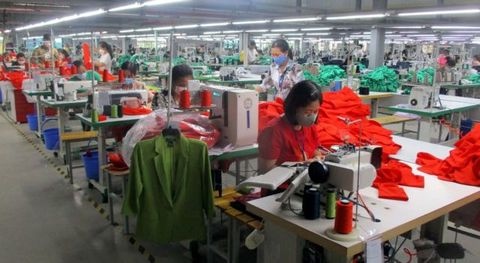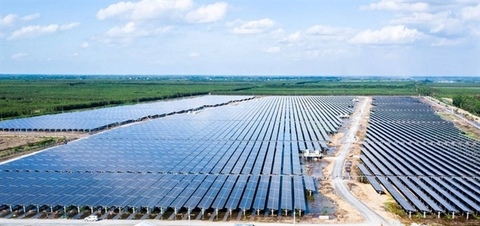Stories Sabeco (SAB) would rather forget
Stories Sabeco (SAB) would rather forget
The year 2018 is going to end soon but the giant Sabeco seems to have an “unlucky” year with ghost of its past returning to haunt it.

Sabeco asked to pay $108.47 million in tax arrears
In February 2018, while auditing Sabeco’s financial reports and related activities in 2016, the State Audit of Vietnam (SAV) directed the corporation to pay VND2.495 trillion ($184.47 million) in dividends to the state since the last round of payments in 2016.
The SAV asked Sabeco to pay VND2.495 trillion ($184.47 million) to the state budget before November 20 and send receipts to the SAV’s Region IV office.
According to the SAV, the interim financial statements for the six-month period ending on June 30, 2017 were audited by PwC Vietnam Co., Ltd. and as of December 31, 2016, Sabeco held more than VND2.8 trillion ($121.739 million) in after-tax profit which it had not declared tax for.
In the first quarter of 2017, VND76 billion ($3.3 million) of this was divided among several funds. Thus, the remaining profit from 2016 and earlier is more than VND2.7 trillion ($117.39 million).
As the state owned 89.59 per cent of Sabeco at the last days of 2016, the SAV proposed the company to pay VND2.4 trillion ($104.35 million) from this undeclared profit and earlier years.
The transfer pricing story
These undeclared taxes also brought up suspicions of transfer-pricing activities among experts.
In 2015, while auditing the financial reports of Sabeco, the SAV detected transfer pricing which lead to the declaration of special consumption tax arrears of VND408.8 billion ($17.77 million).
"Not only foreign-invested enterprises but also many domestic enterprises have shown clear signs of transfer-pricing, causing a serious loss of budgetary revenue for the state. A typical case of this is Sabeco," Ho Duc Phoc, auditor general of the SAV, stated at the workshop on "Transfer pricing – critical issues in current state management" held on July 19 by the Association of Chartered Certified Accountants in co-ordination with SAV, according to cafef.vn.
According to Ho Duc Phoc, the SAV’s collection of special consumption tax from Sabeco may have indirectly pointed to a flaw in special consumption tax management. Therefore, it is necessary to complete the provisions of the law on transfer pricing which remains inadequate and limited.
Associate Professor Nguyen Dinh Hoa, acting director of Auditing Training Institute, said that in the past Sabeco had used subsidiaries to implement transfer pricing.
"Sabeco has been producing and distributing beer products. The corporation produces and sells beer to its subsidiary trading companies. These companies do not sell products directly to consumers, but sell to other subsidiaries at low prices. Then the beer is sold to regional companies, to agents level one, level two, level three, to restaurants, then to consumers,” Nguyen Dinh Hoa analysed.
Recently, Sabeco announced becoming the owner of Sai Gon Beer One Member Limited Company, which was established on July 13 with the charter capital of VND10 million ($43,478), registered mainly for the wholesale of beer, spirits, and beverages, according to vneconomy.vn.
Divesting at a “ridiculously low price”
In 2016, Sabeco sold its entire shareholding in Sabeco Pearl Investment JSC (Sabeco Pearl) to Attland JSC under the contract No.01/HD-SABECO/2016 at the price of VND13,347 ($0.58) per share, collecting only VND195 billion ($8.48 million) in proceeds.
According to the SAV, Sabeco determined the starting unit price of VND13,247 ( $0.57) based on an erroneous valuation of Sabeco Pearl. For example, while using the surplus cost method, Sabeco Pearl used a discount rate to convert future cash flows to current values of 13.69 per cent.
However, in 2016, the discount rate determined by the valuation association of Ho Chi Minh City and appraisal firms for Sabeco Pearl’s real estate projects was 11 per cent. As a result, the value of the Sabeco Pearl has been significantly reduced.
Sabeco Pearl was established to deploy the Saigon Me Linh Tower project with the scale of three basements, nine floors, two towers (48 and 36 floors) on a golden land plot at 2-6 Hai Ba Trung Street, Ben Nghe ward, District 1, Ho Chi Minh City with the area of over 6,000s.qm.
Recently, the Ministry of Public Security (MoPS)’s Investigation Police Office (C01) decided to launch a criminal investigation of "violation of regulations on land management" occurring at Sabeco related to the project at 2-6 Hai Ba Trung Street.
Previously, Sabeco was allowed by the MoF to use the land area to build Sabeco’s office building and trade centre for office services. However, based on the report of the Department of Natural Resources and Environment’s director Dao Anh Kiet, in June 2015, Deputy Chairman of the Ho Chi Minh City People's Committee Nguyen Huu Tin signed a decision approving Sabeco Pearl to lease the land for 50 years to build a six-star complex, convention centre, seminar, and office building for rent. This decision is contrary to the MoF's plan for this land.
According to the audited financial statement in 2015, Sabeco Pearl's total assets reached over VND1.018 trillion ($470.348 million, including land use rights of VND997 billion – $43.348 million and other expenses).
In fact, if Sabeco decides not to use this plot and hand it over to the government, the Ho Chi Minh City People's Committee must allocate the land through an auction of the land use rights rather than voluntarily assignment to Sabeco Pearl.
To top this all off, Sabeco sold its entire stake in Sabeco Pearl to Attland JSC (one of the four founding shareholders of Sabeco Pearl with the initial charter capital of 23 per cent) at the "super cheap" price.
Investment but receive losses
Remarkably, according to the SAV, Sabeco must set aside provisions for losses in 10 long-term investment projects where it hold less than 20 per cent of the charter capital, equalling VND444.7 billion ($19.33 million) in total, including:
In addition, Sabeco had paid more than VND12 billion ($521,739) in bonuses for its general director, deputy general director, head of control department, chief accountant, equal to 20.3 months of their average salaries, whereas the maximum amount allowed under Decree 71 is only 1.5 months. Therefore, the SAV requested the MoIT to clarify responsibilities, according to vnexpress.vn.
As of the last day of September 2018, Sabeco was in the red. According to the corporation’s third quarter financial report, due to the high cost of goods sold, especially the cost of raw materials for malt and aluminium cans, the company's gross profit dropped by 13 per cent against the corresponding period last year, down to VND1.86 trillion ($80.87 million).
On October 30, 2018, Sabeco published Resolution No.111A/2018/NQ-HDQT about lifting the foreign ownership limit on its website. Accordingly, foreign investors will be able to own up to 100 per cent of the capital instead of the previous 49 per cent – a decision which might bring in some much needed expertise and capital to turn the losing tides.





















